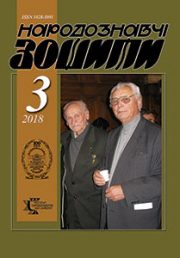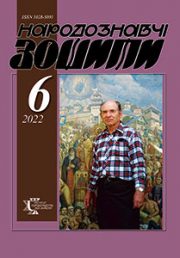The Ethnology Notebooks. 2020. № 2 (152), 251—259
UDK [80+94](=163.42=161.2)-057.4:378.4(497.5-21)]”195/202″Є.Пащенко
DOI https://doi.org/10.15407/nz2020.02.251
YEVHEN PASCHENKO AND UKRAINIAN DIRECTION IN CROATIAN SLAVISTICS
PAVLYUK Stepan
ORCID ID: http://orcid.org/0000-0003-0975-8099
Doctor of Historical Sciences, Professor,
Academician of NAS of Ukraine, Institute of Ethnology,
The National Academy of Sciences of Ukraine (NASU),
15, Svobody Avenue, 79000, Lviv, Ukraine
Contacts: e-mail: ina@mail.lviv.ua
Abstract. Introduction. The object of the study is the most important milestones in the scientific and socio-political activity of the modern scientist Evgeny Paschenko. The subject is its scientific heritage in the study of Ukrainian-Croatian relations, traditional Ukrainian and Croatian culture, scientific and organizational activity as a professor of the Department of Ukrainian language and literature, University of Zagreb, Faculty of Philosophy.
Geographically and chronologically problem related to a wide geographical space and material, while the article focuses mainly on the analysis of materials from Ukraine in the modern Ukrainian and Croatian science.
Formulation of the problem. The article is devoted to the 70th anniversary of the Evgeny Paschenko birthday. Main focus is particularly on highlighting the scientist’s contribution to the development of Ukrainian Croatian Slavistics. This, in fact, caused by the scientific relevance of the article.
Goal. The purpose of work is to highlight the scientific and socio-political activities of Slavist, philologist, folklorist, ethnologist and teacher of High School, doctor of historical sciences, professor of Ukrainian language and literature of the Faculty of Philosophy at the University of Zagreb Evgeny Paschenko, who devoted his life to the service of Ukrainian science and culture in particular. The author tries to distinguish and analyze its contribution to the development of Ukrainian trend in Croatian Slavistics.
Methods. The article used primarily typological and comparative-historical, cultural methods, structural elements of typological, geographical and other methods of ethnology.
Results. On the basis of archive and field sources, scientific literature, reviewed and analyzed major and unexplored Ukrainian trends in the modern Croatian Slavonic studies. The problem of Ukrainian trends in the modern Croatian science related to a wide geographical space and materials. However, that research requires a comprehensive, interdisciplinary comparison. It presents the main results of the study.
Conclusion. Given the complexity of the problem, a broad front of research areas and the topic remains open. At the present stage presentation of results of Ukrainian science is important for Croatia and vice versa — Ukrainian scientists acquainted with the results of Croatian science development. Lack of awareness of Ukrainian Information Fund felt in the Croatian researchers and vice versa — the lack of information on Croatian state — in Ukraine. The next stages of studying is a number of open questions about the research front, which continues to remain promising theme of science, including Slavic studies.
A significant trend in the development of Croatian Ukrainian Slavistics is the role of modern scientist Evgeny Paschenko.
Keywords: Paschenko, philology, Slavic studies, Ukrainian studies, Croatian studies, Institute of National Academy of Sciences of Ukraine, University of Zagreb.
Received 7.04.2020
REFERENCES
Paschenko, Y. (1983). V. Nazor and folklor in croatian literature. Kyiv: Naukova dumka [in Ukrainian].
(2004). Ukrainian Baroque: 2 vol. Kharkiv: Akta [in Ukrainian].
Paschenko, Yevhen. (1999). Ethnogenesis and mythology of Croatians in Ukraine [in Croatian].
Paschenko, Yevhen. Juraj Krizanic i Ukrajina. Graditelji europske krscanske unije. Zagreb: Matica hrvatska [in Croatian].





